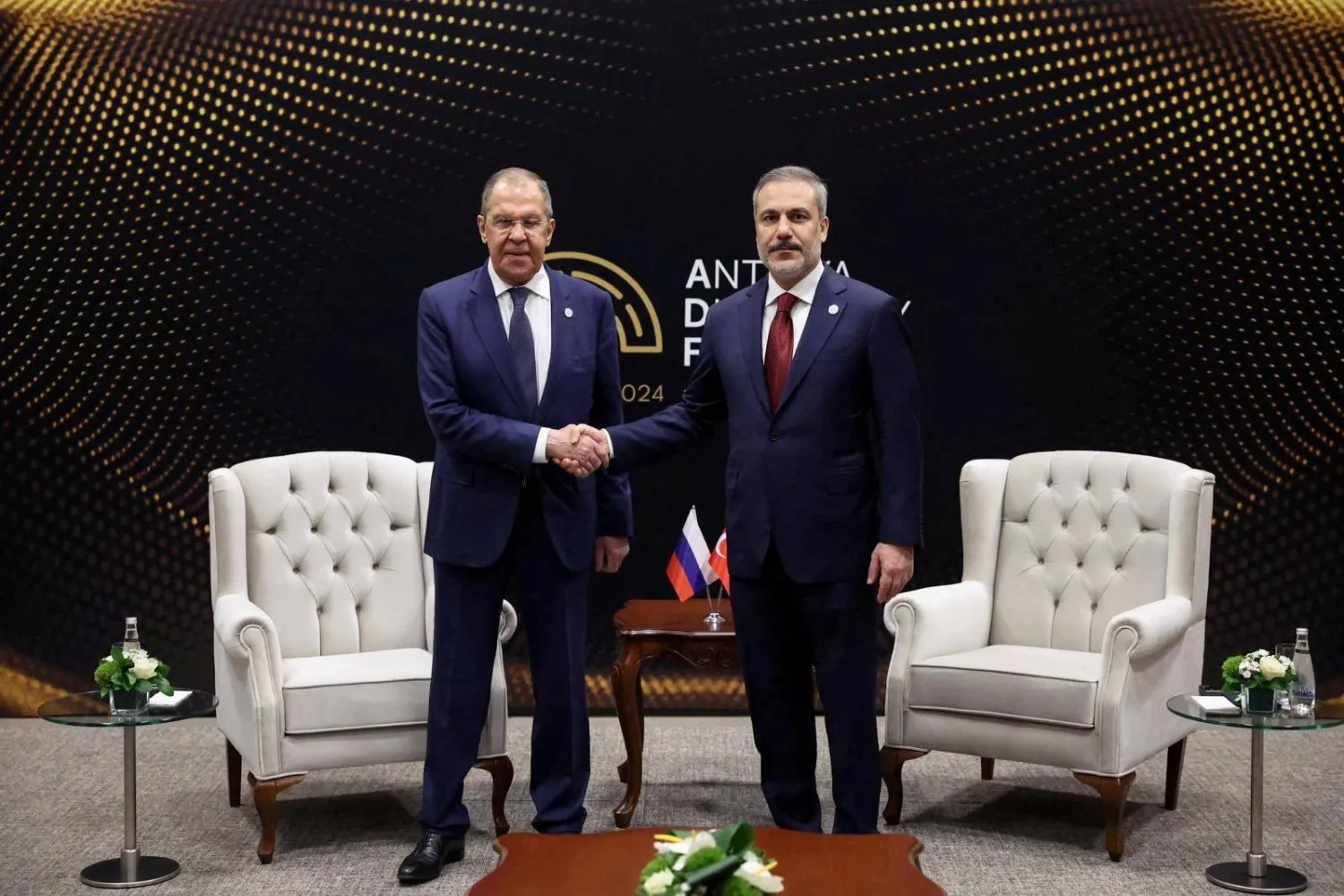Türkiye says it is now time to start a dialogue between Moscow and Kyiv for a ceasefire, Foreign Minister Hakan Fidan said on Sunday in the southern city of Antalya.
Fidan met his Russian counterpart, Sergei Lavrov, on Friday on the sidelines of the Antalya Diplomacy Forum. He told reporters he had discussed a number of issues with Lavrov, including Ukraine.
“On the issue of Ukraine, our view is that both sides have reached the limits of what they can get by war. We think that it is time to start a dialogue for a ceasefire,”Fidan said.
The foreign minister added that opening up ceasefire talks “doesn't mean recognizing the occupation (by Russia), but issues of sovereignty and ceasefire should be discussed separately.”
NATO member Türkiye, which shares a maritime border with both Ukraine and Russia in the Black Sea, has sought to maintain good ties with both nations since Russia’s invasion of Ukraine two years ago.
Ankara has provided military support for Ukraine and voiced support for its territorial integrity, but also opposes sanctions on Russia.
Fidan’s meeting with Lavrov came shortly before a trip to Washington to meet his American counterpart Secretary of State Antony Blinken.
The meeting will be held within the framework of the Türkiye-US Strategic Dialogue Mechanism, held on March 7 and 8. It comes as Moscow signaled its readiness to hold talks with Washington.
In 2022, Türkiye hosted unofficial peace talks between Russia and Ukraine at the second diplomatic forum in the Turkish city of Antalya. The talks has not yielded any positive results.
Last month, Türkiye’s President Tayyip Erdogan expressed his ongoing willingness to mediate between Russia and Ukraine for a “fair” peace between the two countries.
“We have brought the parties together in Türkiye on multiple occasions. We can do this again and open the door to peace through a solution-focused process management, free from external influences,” Erdogan said.
“In our meetings with both President (Vladimir) Putin and President (Volodymyr) Zelenskiy, we continue our efforts in this pursuit,” he added.









